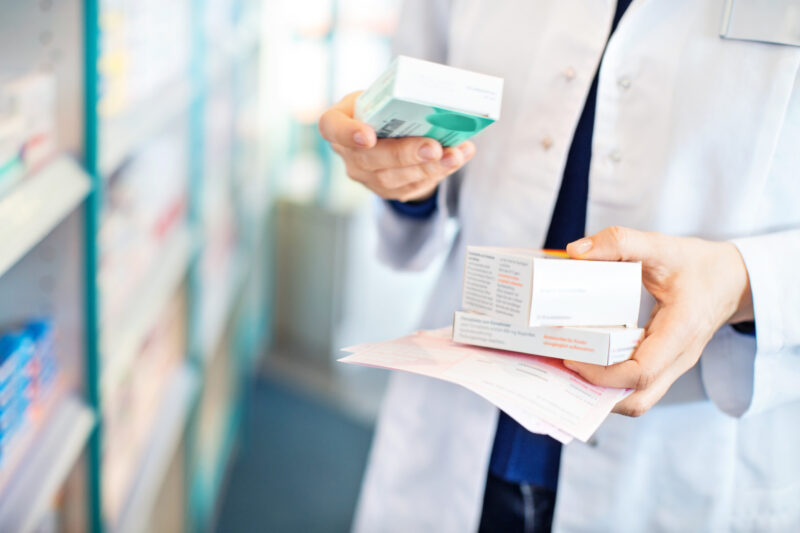In 2019, approximately 3.8 billion prescriptions were filled at retail pharmacies across the US. But your pharmacist does more than just fill your prescription. Your pharmacist ensures your total safety when filling your prescription and they can answer any question you have about your medication. It’s a great idea for patients to build a good relationship with their pharmacist. The next time you get a prescription filled, ask your pharmacist the following questions:
1. What is the Name of the Medication and What Is it For?
It’s important for patients to learn the names of all of their medications as well as why they take them. It’s also important for patients to keep a list of their medications with them at all times. For patients who see multiple doctors, their doctors will want to keep up-to-date and know what medications the patient is currently taking and why. Having a list of your medications on hand is also useful if an emergency occurs and medical personnel need to know what medications you’re taking.
2. How Should I Take the Medication?
Taking medications as directed is an important part of achieving desired treatment outcomes. Some examples of questions you should be asking your pharmacist to ensure that you’re taking your medication correctly include:
- How long should I take this medication for?
- Should I take it with or without food?
- How often should I take it?
- What time of day should I take it?
3. Should I Take Any Precautions With the Medication?
Some medications can interact with other prescription or over-the-counter medications, alcohol, certain foods. There are also medications that can make you feel drowsy and can even cause sensitivity to the sun. In order to avoid adverse side effects, it’s important for patients to understand what things they should avoid while taking their medication. For example, antibiotics increase the skin’s sensitivity to the sun and therefore increase the risk of sunburn. When patients take antibiotics, they should avoid sun exposure or, if they must be out in the sun for work, wear a hat and protective clothing like a long-sleeved shirt. Patients should never skip a dose of an antibiotic so they can go out in the sun!
4. What Should I Do if I Miss a Dose?
It’s important that patients follow instructions when taking a prescription medication, but missing a dose of medication can happen to anyone. If you forget a dose of your medication, don’t take a double dose, this could be dangerous depending on the prescription. Your pharmacist will give you instructions on what to do if you miss a dose. For example, they may tell you to take your medication as soon as you realize you missed a dose or tell you to wait until your next scheduled dose.
5. What Are the Side Effects?
Side effects can happen with any medication. Although they’re not always serious, it’s important for patients to understand what side effects they may experience while taking their medication as well as what to do. If you experience any unexplained side effects, call your doctor or pharmacist immediately.
Have More Questions? You Can Call Your Pharmacist Any Time
Questions about medications can occur at any time. When you pick up your prescription, ask your pharmacist if someone is available 24 hours to take calls. If a question comes up about your medication, don’t hesitate to contact your pharmacist.
Sources:



